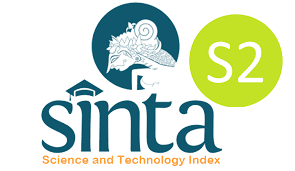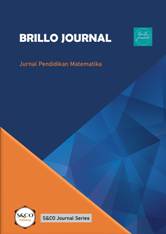Comparative Analysis of Mathematics Anxiety and Academic Achievement among Science Education Students
DOI:
https://doi.org/10.56773/bj.v4i2.63Keywords:
Academic achievement, Mathematics anxiety, Science educationAbstract
This study examines the comparative analysis of mathematics anxiety and academic achievement among second-year Science Education students at Alvan Ikoku Federal University of Education, Owerri. Three research questions and hypotheses were tested at a 0.05 significance level. Using a correlation and comparative research design, all 85 students were included via census sampling. Data were collected using the Mathematics Anxiety Rating Scale (MARS), adapted from Al Mutawah (2015), and the Basic Mathematics for Science Education Achievement Test (BMSEDAT). MARS had 20 items with a Cronbach’s alpha reliability of 0.70, while BMSEDAT consisted of 6 essay questions, with a reliability coefficient of 0.71. Pearson’s correlation and independent samples t-test were used for data analysis. Findings revealed a significant relationship between mathematics anxiety and achievement, specifically among Biology students, but not in Chemistry and Physics. It was recommended that teachers should adopt positive, supportive teaching methods that encourage students to develop a healthy attitude toward mathematics.
References
Al-Shannaq, M. M. M., & Leppavirta, J. (2020). Comparing Math Anxiety of Scientific Facilities Students as Related to Achievement, and Some Variables. International Journal of Instruction, 13(1), 341–352. https://doi.org/10.29333/iji.2020.13123a
Al Mutawah, M. A. (2015). The Influence of Mathematics Anxiety in Middle and High School Students Math Achievement. International Education Studies, 8(11), 239–252. https://doi.org/10.5539/ies.v8n11p239
Alzahrani, A., & Stojanovski, A. (2017). Assessment of anxiety on mathematics for students in secondary school in Qatar. International Journal of Novel Research in Education and Learning, 6(1), 15–18.
Bandura, A. (2023). Cultivate Self‐Efficacy for Personal and Organizational Effectiveness. In E. A. Locke & C. L. Pearce (Eds.), Principles of Organizational Behavior (3rd ed., pp. 113–135). Wiley. https://doi.org/10.1002/9781394320769.ch6
Department of Mathematics. (2019). Degree students’ handbook. Alvan Ikoku Federal University of Education.
Eze, P. O., Eze, C. O., Amajoyi, L. C., Oyishi, C. N., & Ngwoke, D. U. (2021). Influence of adverse childhood experiences on academic achievement of in-school adolescents in Obollo-Affor educational zone, Enugu state. Journal of Nigerian Council of Educational Psychologists, 15(2), 34–46.
Karimi, A., & Venkatesen, S. (2009). Mathematics anxiety, mathematics performance, and academic hardiness in high school students. International Journal of Educational Sciences, 1(1), 33–37.
Kaushal, R., Rose, S. C., Sehrawat, S., Sharma, R., Lata, P., & Gorakhnath, I. (2022). Exploration of the factors of mathematics anxiety and its impact on the achievement of students in mathematics. International Journal of Health Sciences, 6(9), 1236–1247. https://doi.org/10.53730/ijhs.v6nS9.12482
Lopez-Garrido, G. (2025). Bandura’s self-efficacy theory of motivation in psychology. SimplyPsychology. https://www.simplypsychology.org/self-efficacy.html
Maduka, M. A., Anyanwu, H. C., Nwachukwu, K. C., Amanze, N. C., & Ochogu, J. O. (2023). Managing students stress to enhance academic achievements for sustainable development in tertiary institutions in Imo state. Alvana Journal of Science, 14(1), 9–15.
Mollah, K. (2017). Mathematics Anxiety among the School Student. Pramana Research Journal, 7(11), 122–129. https://pramanaresearch.org
Naceanceno, K. D., Capps, S. K., Whittenburg, R., & Ortiz, A. (2021). A Comparison of Anxiety Levels among College Students. Journal of Graduate Education Research, 2, 8. https://scholarworks.harding.edu/jger/vol2/iss1/8
Nwoke, B. I., & Ike, I. C. (2019). Enhancing primary school pupils’ mathematics creative ability through activity-based learning approach. Journal of African Education, 6(1), 97–108.
Nwosu, C. O., Ejiogu, B. C., Eke, B. O., Enwere, M. E., & Chukwunenye, J. N. (2023). Anxiety level and academic performance of senior secondary school physics students in Owerri Imo state. Alvana Journal of Science, 14(1), 16–23.
Obinna, E., & Anne, M. (2011). Enhancing mathematics teachers’/educators’/lecturers’ teaching in tertiary institutions through lesson study. In Proceedings of a Capacity Building Workshop for Mathematical Science Lecturers in Tertiary Institutions (pp. 17–26). National Mathematical Centre.
Salinas, K. J. H., Tolibao, J. R., & Moneva, D. J. C. (2019). Student’s anxiety in mathematics. International Journal of Novel Research in Education and Learning, 6(1), 46–55.
Sweller, J. (2011). Cognitive Load Theory. In A special issue of educational psychologist (pp. 37–76). https://doi.org/10.1016/B978-0-12-387691-1.00002-8
Woods, D. (2006). Coping with math anxiety: A workshop for students. University of Central Missouri. https://www.ucmo.edu/offices/learning-commons/digital-learning-commons/coping-with-math-anxiety.pdf
Zakaria, E., Zain, N. M., Ahmad, N. A., & Erlina, A. (2012). Mathematics anxiety and achievement among secondary school students. American Journal of Applied Sciences, 9(11), 1828–1832.
Downloads
Published
How to Cite
Issue
Section
License
Copyright (c) 2025 Iheanacho Chukwudi Ike, Darlington Chibueze Duru, Uzoma Alwell, David Onyinye Mba

This work is licensed under a Creative Commons Attribution 4.0 International License.
The authors agree that this article remains permanently open access under the terms of the Creative Commons Attribution 4.0 International License





